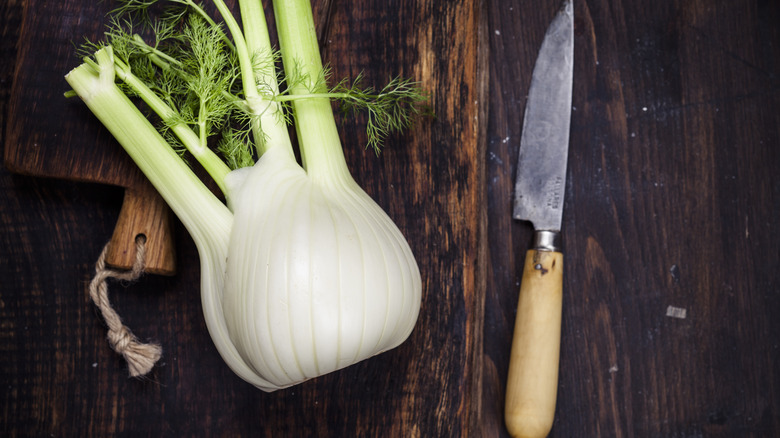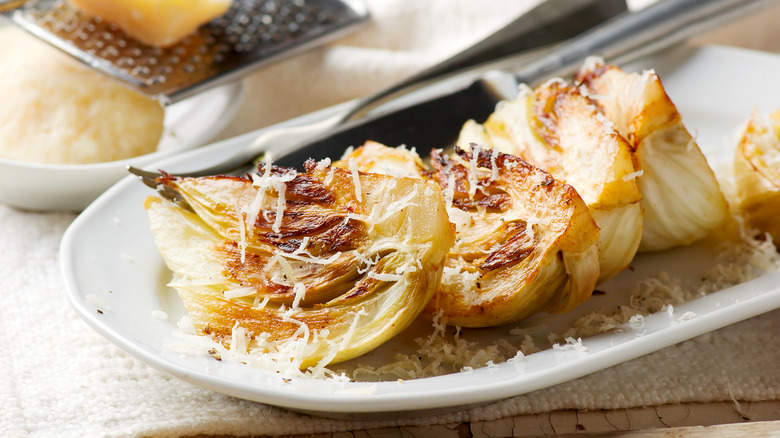The Perfect Onion Substitute Also Lends An Aromatic Twist
Onion is a wonderful little allium whose sweet and pungent flavor is more than enough to get anyone hooked. Whether caramelized to perfection and paired with rich beef broth for a classic French onion soup, or diced up and mixed together with some tomatoes, lemon juice, and avocado for a killer guacamole, onions are a kitchen staple that simply find their way into almost everything and make it better.
But what happens if you don't have any at home, or if they were sold out when you went to the market to grab some? There's absolutely no need to panic. Of course, adding some onions to your well-thought-out Sunday lunch recipe would have been ideal, but in case of such emergencies, simply go for the next best thing: fennel.
The first rule about fennel: Don't confuse fennel and dill — there's a difference. And now with that out of the way, the thing about fennel is that it's a versatile, bulbous Mediterranean vegetable which can not only boost the taste of sauces and gravies, but also improve the flavor of braised dishes, roasts, or even salads, while bringing in the same sweet, rich depth you'd expect from an onion. Fennel has a subtle anise or licorice flavor, especially when uncooked. However, the moment it hits the heat, its sharpness begins to soften, ultimately leaving behind a milder, sweeter kick that blends beautifully with the rest of the ingredients. So, how do you make the most of it as an onion substitute?
Fennel is more versatile than you think
If you've by any chance seen the ultimate guide to fennel, from fronds to seeds, then you probably know that all fennel parts — including the roots, stems, and flowers — are edible. But, if you're unfamiliar with fennel and are not quite sure how to use it, there's no reason to immediately rule it out. A little extra help can go a long way, and learning how to cut fennel bulbs for salads and roasting is a good place to begin. Once you've separated the stalks and fronds, it's time to start using the bulbs in place of onions in your recipes.
When cooked, fennel's flavor is a great alternative for white onions — particularly in sauces and gravies — as the heat softens its sharpness and tones down its anise-like flavor. Meanwhile, if you're making a traditional Greek salad and want that extra crunch you'd usually get from red onion, you could swap the allium with some crisp, raw fennel and get an earthy licorice kick.
Swapping onions with fennel can also significantly boost the flavor of many stews and soups, as the vegetable will add some deeper, heartier notes of its own to the dish. And finally, if you've got company coming over and need a quick caramelized onion dip, why not try and use fennel instead? After all, fennel can also be caramelized the same way as you would an onion, and you might just end up surprised by how good it tastes.

